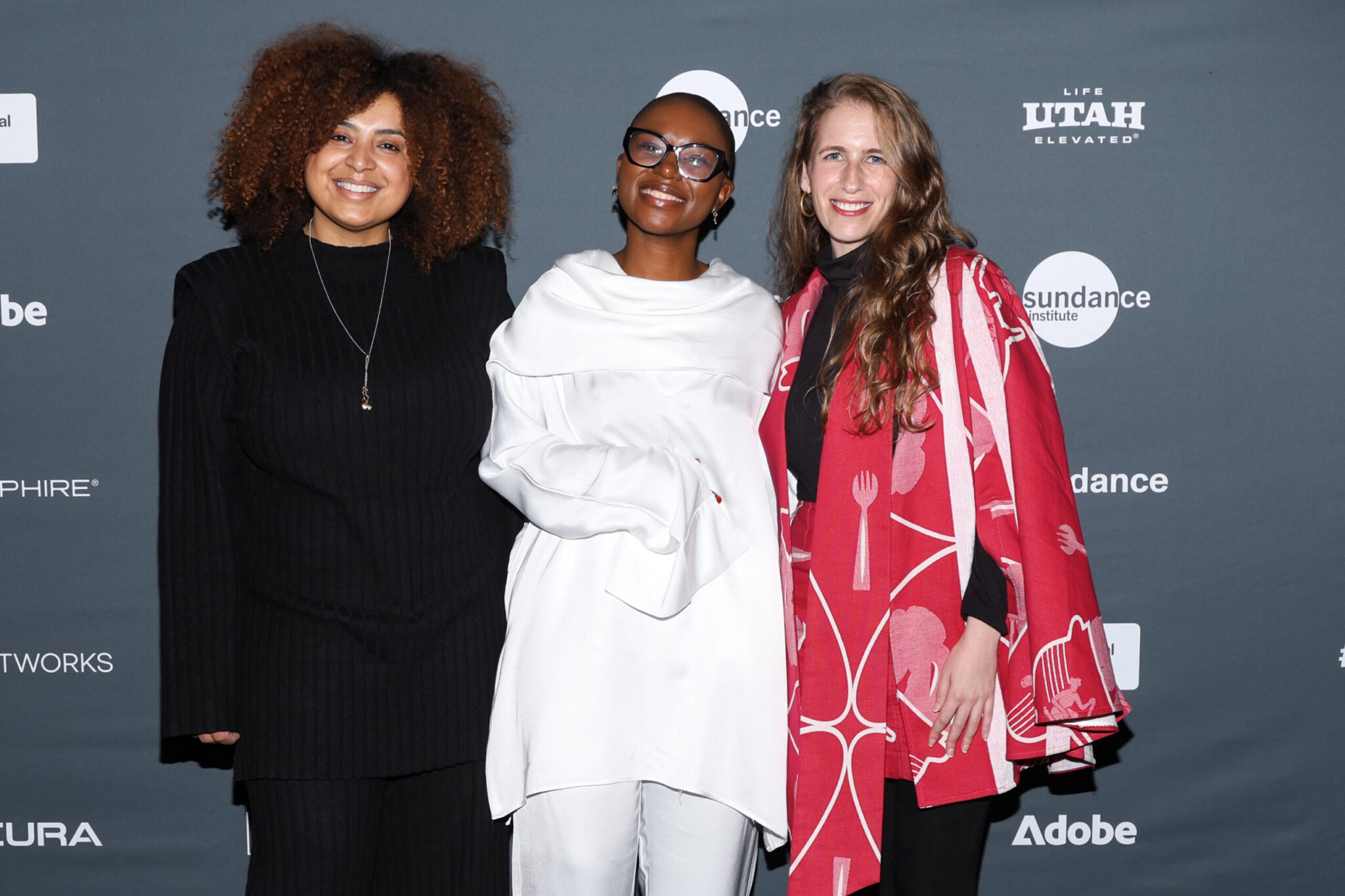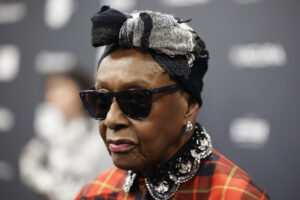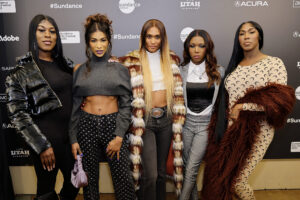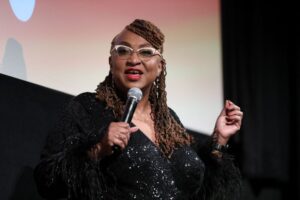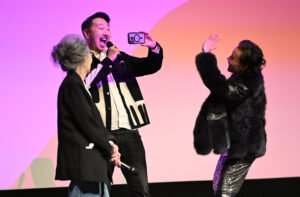PARK CITY, UTAH – JANUARY 21: Director Milisuthando Bongela (C) and Producer Marion Isaacs (R) attend the 2023 Sundance Film Festival “Milisuthando” Premiere at Prospector Square Theatre on January 21, 2023 in Park City, Utah. (Photo by Steven Simione/Getty Images)
By Aliese Muhonen
Milisuthando Bongela has a lot of questions. Chief among them: how could she — a Black South African born and raised in the height of apartheid — not know of the regime’s evils?
The issue of unawareness troubles many residents of the former Republic of Transkei, where Bongela grew up, and is one of many queries she seeks to answer in her self-titled documentary, which premiered January 21 in the World Cinema Documentary Competition at the 2023 Sundance Film Festival.
Growing up in Transkei in the 1980s and early ’90s, Bongela’s childhood memories seemed ideal. She and her Xhosa-speaking family members recall a comfortable middle-class existence, where people dressed well, enjoyed music and community events, and residents were given jobs.
An unofficial state established by the regime in 1976, Transkei’s population was segregated to Black people, who were told they were outside of apartheid restrictions in a “Black free state.” But when Transkei dissolved along with apartheid in 1994, residents could finally see it for what it was: a twisted social experiment created to prove the success of apartheid (literally translated as “apartness” in Afrikaans), whose denizens served as a source of cheap labor for white South Africa’s mines and industries.
Yet many former residents miss Transkei’s sense of belonging, and, like Bongela, struggle with guilt about the experience.
“Was it because I was in a segregated place,” she asks, “that I found the most acceptance I’ve ever known?”
Filmed with support from the Sundance Documentary Film Program, Milisuthando intriguingly evades categorization. The film combines multiple genres into a poetic, nonlinear personal essay: it’s a documentary in its exploration of apartheid-era South Africa and Transkei, a love letter to the memories of Bongela’s family as they reflect on confusion and lingering wounds; a self-reflection as Bongela ponders her experiences and coming of age post-apartheid; and a charge to eradicate racism in South Africa and throughout the world.
But how? Confronting a widespread evil like racism is uncomfortable for anyone. Bongela deploys her modus operandi — brave questions that directly address racism —- to initiate much-needed conversations. Part of the power of Bongela’s approach is that she doesn’t shy away from inevitable conflicts, and speaks with everyone she can think of — family members, old classmates, white friends, and herself.
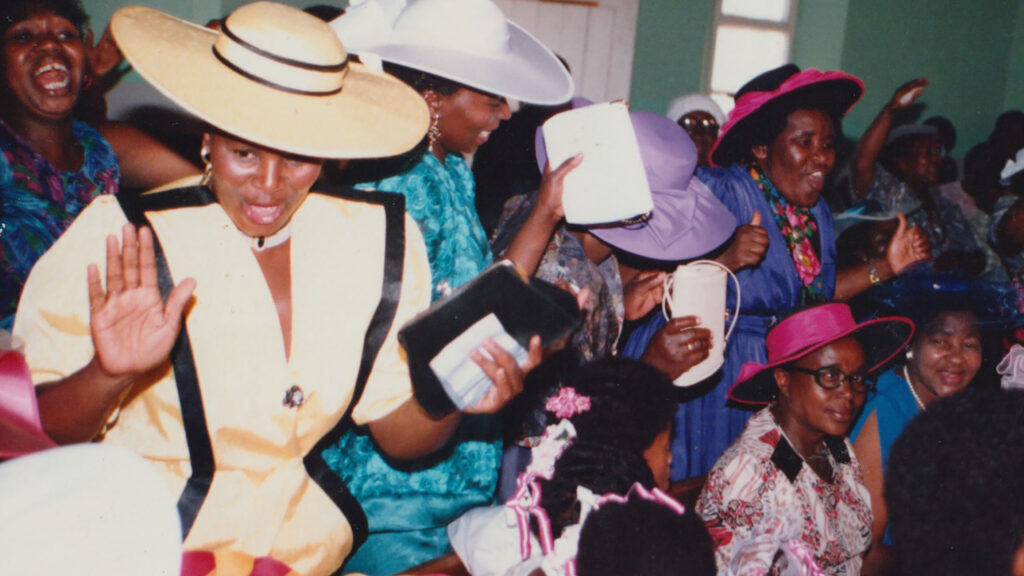
“I’m interested in how we’re always invulnerable and strong and fighting as Black people,” Bongela tells the audience at the Q&A following the premiere. “And we’re very good at that … but we don’t create enough space for the vulnerability about things we carry, such as fear: the fear of white people. The fear of disappointing white people, the fear of making a white person angry because there’s a lot of consequences to that … And so where was the space to engage those kinds of things? For me, it was about that … so that our own healing can begin to happen in earnest.”
In one memorable sequence, Bongela has a long and increasingly heated discussion with Marion Isaacs, her longtime friend and the film’s producer. Though the women have known each other for years and have tried to be open about racism, they hadn’t fully addressed its underlying tension in their interracial friendship (Isaacs is white).
Both acknowledge how difficult it was to include the scene, which took place in a hotel room as they were in the midst of finding financial support for the film. As their discussion gets more emotionally charged, they express years of anger and frustration at the racism in their lives and friendship. It’s uncomfortable, and vital viewing. The exchange is audio-only for long stretches — an unusual choice, and effective in making audience members ask themselves the difficult questions they hear.
“What you see in that conversation was really the beginning of us having difficult, messy conversations [about racism],” Isaacs says. “And I think we had a bit of naivete initially; we thought that we would have difficult conversations and that they might come to an end. But they’ve continued. We’ve come to understand that the way this stuff lives between us will always be there, and the best thing to do is to keep surfacing it and keep honoring it, because it’s so difficult, it’s ongoing, and that history is there.”
The honest answers suggest that the ugliness of apartheid, and more broadly racism, affected and continue to affect everyone.
One of Bongela’s final questions in the film — “Who will you become, because of who you come from?” — is as much to the audience as it is to herself.
Like the ceremonial imphepho herb that Bongela’s grandmother burns to remove evil spirits, confronting injustice with questions is a key weapon in removing racism from the global landscape.
“I hope people can tap into that spirit, and also go back into their own lives, and start asking these questions of themselves and their own friendships, and slowly shuffle forward,” Bongela says. “Because it’s not easy, this thing. It’s very dangerous, the emotional realm.”




